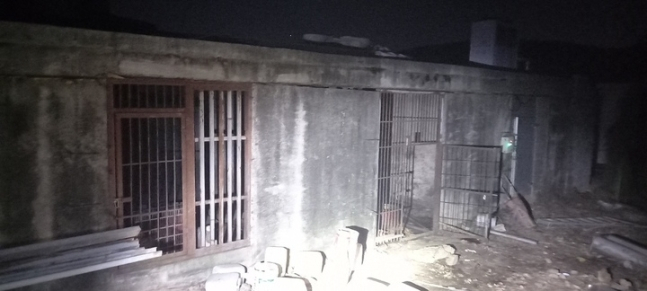 |
A bear breeding farm in Ulju-gun, Ulsan, where three bears escaped on Thursday afternoon. (Ulju-gun) |
A couple in their 60s who owned a bear breeding farm were found dead in an apparent attack by the bears they own, the police said on Friday. Bear breeding faces criticism for violating animal rights, but the government is not able to provide other options at the moment, as it would take many more years to build adequate facilities.
On Thursday night, police found the bodies of the couple at the entrance of the farm after receiving a missing person report from their daughter at 9:45 p.m.
It was difficult to access the site because a bear was wandering around. Police shot and killed two bears outside the farm and one bear inside the farm.
Police are investigating the exact cause of death for the couple. Police assume that the couple died after being attacked by a bear, as scratches or bites were identified on their arms and bodies.
The farm was fined 3 million won ($2,300) in 2020 for operating as an unregistered international endangered species breeding facility.
A related official from the Environment Ministry told The Korea Herald that the owners had been raising the bears recreationally and not collecting their bile. “The cage was small, but they were properly fed,” the official said.
“The facility was unregistered, but we have no other way to confiscate the bears because there are no facilities to take care of them yet,” he said.
The Environment Ministry is pursuing a project to create a protection facility for bears in Gurye, South Jeolla Province, which is set to be completed around 2024.
The government recently declared that it would end bear breeding in 2026. However, it is still legal to slaughter and collect their bile until 2025.
Bear breeding in South Korea first began in 1981. Under the previous Chun Doo-hwan administration, people were allowed to import bears, tigers, lions, wolves and foxes for re-export purposes if they had certain facilities.
However, imports were abruptly stopped in 1985 in the lead-up to the 1988 Seoul Olympics as international criticism against bear breeding and collecting bear bile intensified. The bears which were already imported were left unattended and have been used for collecting bile since then.





![[Herald Interview] 'Trump will use tariffs as first line of defense for American manufacturing'](http://res.heraldm.com/phpwas/restmb_idxmake.php?idx=644&simg=/content/image/2024/11/26/20241126050017_0.jpg)
![[Health and care] Getting cancer young: Why cancer isn’t just an older person’s battle](http://res.heraldm.com/phpwas/restmb_idxmake.php?idx=644&simg=/content/image/2024/11/26/20241126050043_0.jpg)
